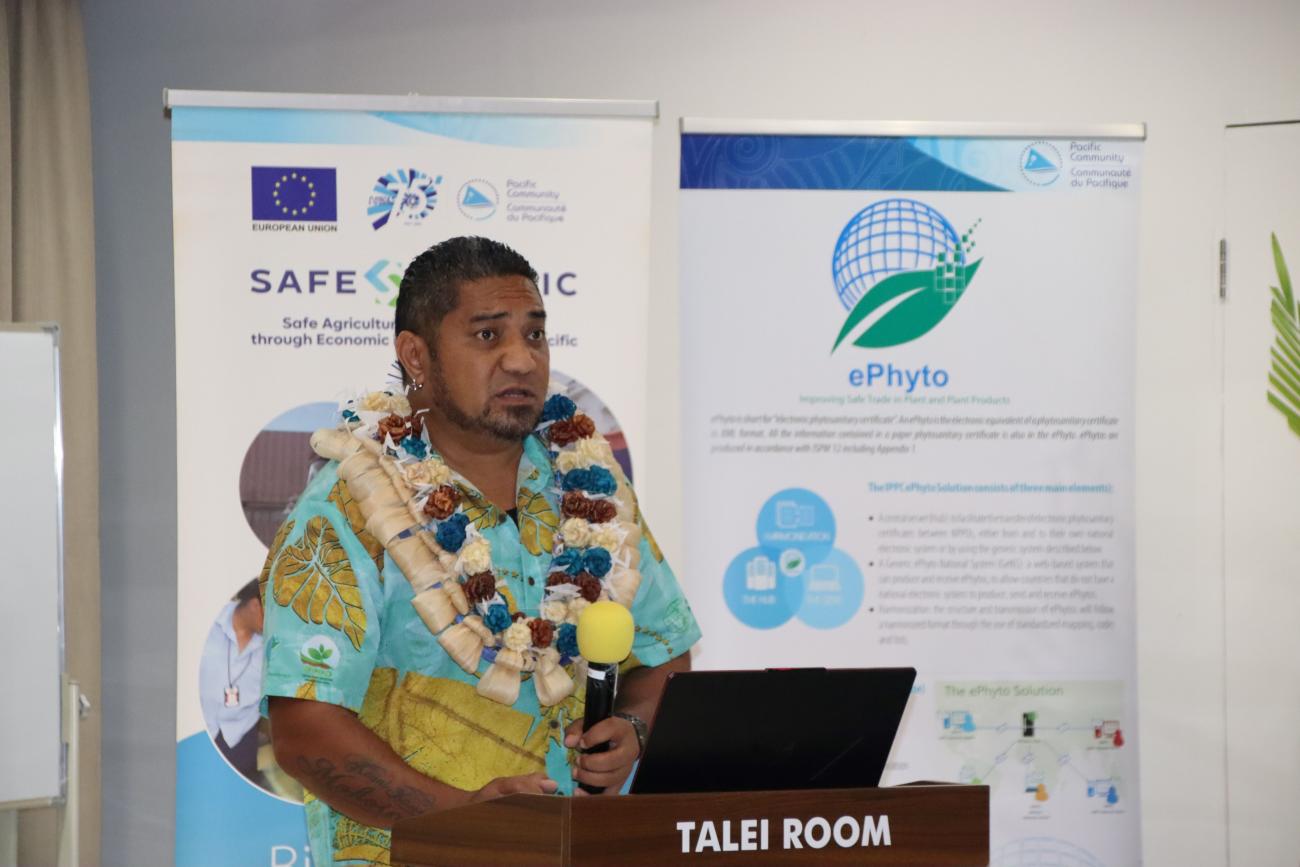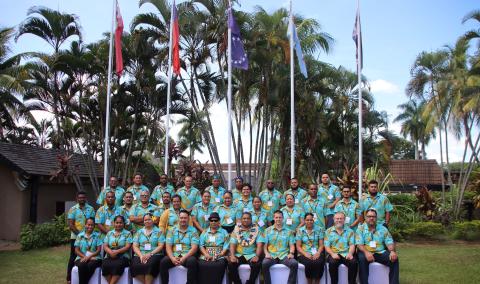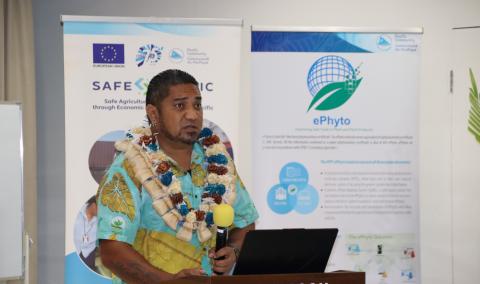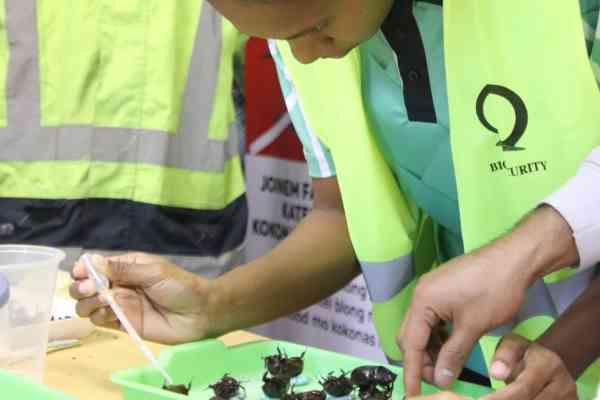
Biosecurity and plant protection officers, development partners and Ministry of Agriculture representatives from the region have joined the Pacific Community (SPC) to ensure efficient utilisation of the Generic ePhyto National System (GeNS) by participating countries.
The 3rd Electronic Phytosanitary Certificate (ePhyto) regional workshop and training happening from the 6th – 10th November 2023 at the Tanoa International Hotel in Nadi, Fiji, is bringing together Pacific Island Governments and Biosecurity Heads at the Pacific Plant Protection Organization (PPPO) and the International Plant Protection Convention (IPPC) to improve a system that serves as a trade facilitation mechanism to enhance exports and expedite clearance processes for imported agricultural goods. Using the GeNS system, Pacific Island countries can participate in safer, faster and more affordable trade opportunities. Representatives from Cook Islands, Fiji, Kiribati, Nauru, Papua New Guinea, Samoa, Tonga, Tuvalu, and Niue attended to share their experiences and recommend implementing the GeNS System.
Meeting chair New Aue, Head of Niue Biosecurity, in his keynote address, discussed the PPPO Regional ePhyto Strategy that aims to develop a streamlined trading platform that opens new markets and expands trade potential while minimising phytosanitary risks and ensures uniformity in trading processes across Pacific countries. Further stating, “In a snapshot, ePhyto enables governments to share phytosanitary trade data well in advance of a commodity’s arrival. Importing countries save time in determining compliance and can address any biosecurity or documentary issues directly with the exporting authority. This will help to pre-plan their inspections, logistics and testing.”
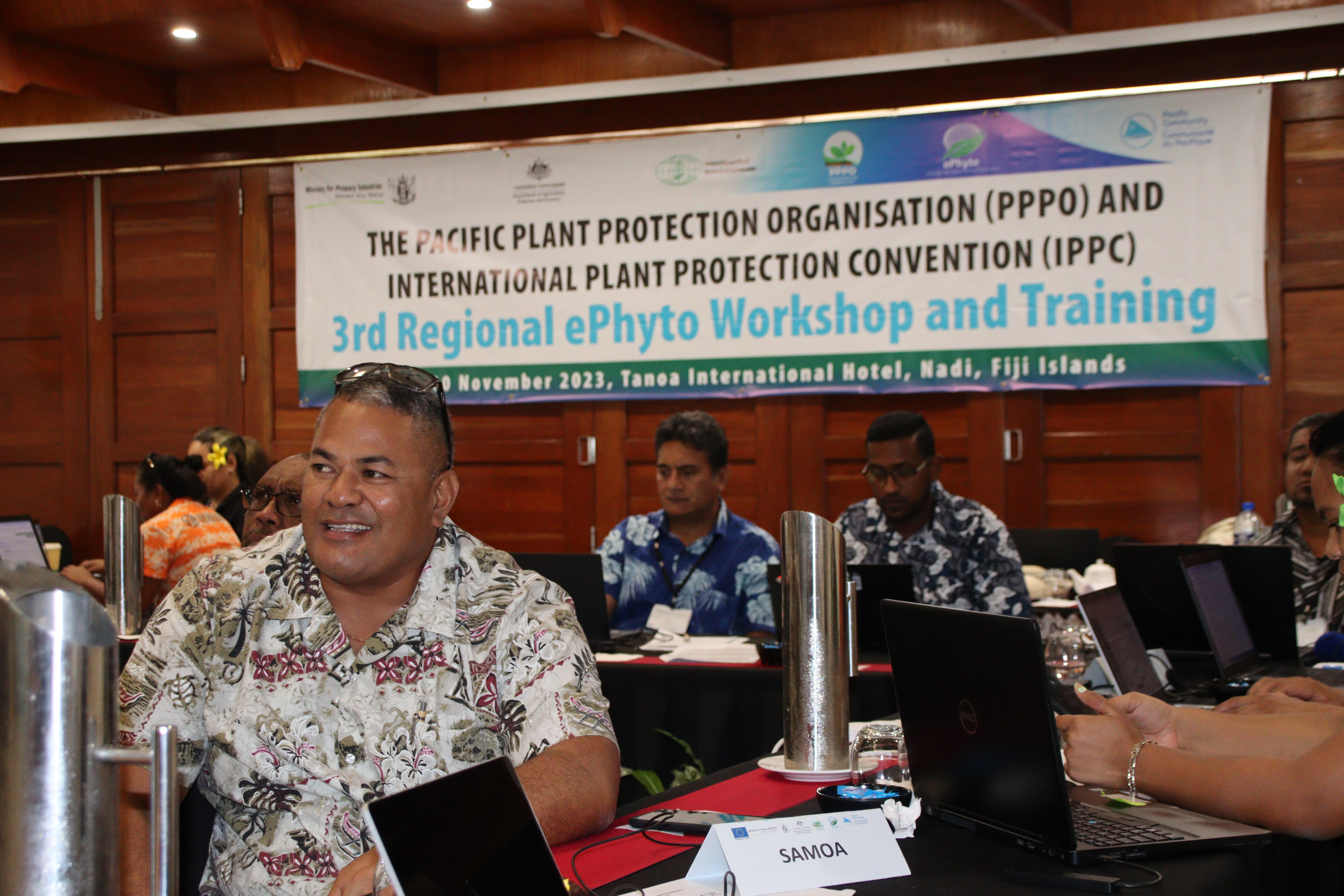
Other benefits of the GeNS systems shared with other participating countries include faster border clearance for exported consignments, efficiencies at national borders, greater confidence in the authenticity of the information and more efficient processes for replacing certificates. A number of countries, such as Argentina, Chile, Fiji, Ghana, Morocco, Netherlands, New Zealand, Sri Lanka, Samoa and the USA, are already operating the system to transmit phytosanitary certificates safely.
The week’s meeting will allow for discussions on guiding principles for effective implementation and management of ePhyto in the region between PPPO, member countries and development agencies. Additionally, participants will receive training to run the GeNS testing plan, and the workshop will end on Friday, 10th November, with the launch of the PPPO ePhyto Talanoa Session initiative.
The PPPO / IPPC 3rd ePhyto Regional Workshop and Training is supported by the Australia Department of Agriculture, Fisheries and Forestry (DAFF), New Zealand Ministry of Primary Industries (MPI), the European Union and the Pacific Agreement on Closer Economic Relations (PACER) Plus, and implemented by the PPPO Executive Secretary and Biosecurity and Sanitary & Phytosanitary (BSPS) team at the Pacific Community’s Land Resources Division (SPC-LRD).
